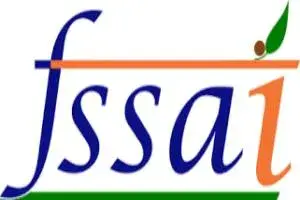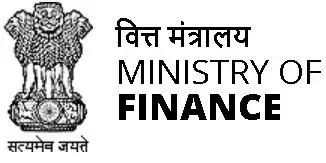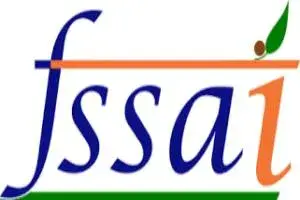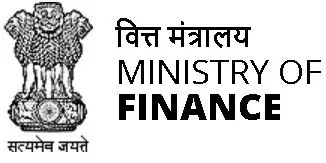India: Food Regulator Mandates Food Safety Supervisor for Restaurants and License for E-commerce operators
India: Compensation to Retail Individual Investors in an Initial Public Offering
India signs Double Taxation Avoidance Agreement with Iran
India: Cabinet approves Fugitive Economic Offenders Bill, 2018
India: Crackdown launched on E-Goods supplying outlets
India: Food Regulator Mandates Food Safety Supervisor for Restaurants and License for E-commerce operators

Source:www.fssai.gov.in
Introduction
The apex food regulator, Food Safety and Standards Authority of India (hereinafter referred to as “FSSAI”) has issued new regulations wherein it has made mandatory for restaurants to employ at least one technical person or Food Safety Supervisor trained by FSSAI and that companies that sell food on e-commerce portals should also obtain food license.
Background
FSSAI approved the Food Safety and Standards (Licensing and Registration of Food Business) Amendment Regulations, 2018 (hereinafter referred to as “Regulations”) at a meeting held on September 21, 2018. The Regulations contain various amendments with respect to licensing and registration of e-commerce food business operators, conditions for license of restaurant, etc. The draft Regulations are in the process of being notified and enforced. However, keeping in mind, the public health interest and to ensure food safety of food business operators, FSSAI has decided to operationalize the regulations with immediate effect vide notification dated February 15, 2018.
Conditions of license for restaurants
The Regulations state that restaurants shall display a Food Safety Display Board at all times at a prominent place in the premises. Further, restaurants must employ one technical person or Food Safety Supervisor trained by FSSAI. Restaurants shall buy food raw materials only from licensed/registered vendors and maintain record. Moreover, hotels, restaurants and other food establishments who sell or expose for sale savouries, sweets or other articles of food shall put up a notice board containing separate lists of the articles which have been cooked in ghee, edible oil, vanaspati and other fats for the information of the intending purchasers
However, the process of applying for new license for restaurants has been simplified as restaurants now need not submit the blueprint/layout plan, name & list of equipment and machinery, list of food category, NOC from manufacturer and recall plan while applying for state/central license
Registration and Licensing of E-Commerce Food Business
The Regulations have defined E-commerce Food Business Operators or E-commerce FBO to mean food business operators which carry on manufacture, processing, packaging, storage, transportation, distribution of food, import of food through e-commerce medium. The Regulations have mandated that E-commerce FBOs to obtain registration and license from the concerned authorities under FSSAI. However, E-commerce entities providing listing or directory of FBO or food products are exempted from such license or registration, although such E-commerce entities facilitating orders/transaction on their website are required to obtain license or registration.
FSSAI has also prescribed various responsibilities on E-commerce FBOs including but not limited to the following –
- The sellers/brand owners/manufacturers on the e-commerce platform shall be required to
display their License/Registration obtained, - All e-commerce FBOs are required to sign an agreement with the sellers/brand owners/manufacturers averring that the said ‘sellers/brand owners/manufacturers’ are compliant with acts and regulations of FSSAI and the liabilities shall rest with these FBOs.
- Any food article delivered to consumer by e-commerce FBO shall have shelf life of 30 percent or 45 days before expiry at the time of delivery to the consumer. However, in case of caters or restaurant receiving order through electronic media, only fresh food item shall be delivered to the consumer.
- It shall be ensured by the e-commerce FBOs that the last mile delivery is undertaken by trained delivery personnel and the safety of food product is not compromised at the time of delivery.
- E-commerce FBOs shall ensure that no misleading information/false claims to the product or misleading images of food products are made available or shown on their platform.
Takeaway
The regulations introduced by FSSAI are envisaged to ensure food safety and health of consumers. However, there is a possibility that people might now be deterred from venturing into food businesses, which is a blooming business these days, as it might impose financial responsibility for small restaurants to employ food safety supervisors.
India: Compensation to Retail Individual Investors in an Initial Public Offering
Background:
The Securities and Exchange Board of India (hereinafter referred as ‘SEBI’) vide circular dated February 15, 2018, has stated that the Self Certified Syndicate Banks (hereinafter referred as ‘SCSB’) shall compensate the retail individual investors (hereinafter referred as ‘RII’) if there is failure on their part to make allotment in spite of the RII’s eligibility.
Failure on part of the Self Certified Syndicate Banks:
SEBI listed several instances wherein the RII in an IPO have not been allotted the specified securities and thus, have suffered an opportunity loss due to failure on part of SCSBs. Such instances include:
- Failure in making bids in the Exchange system.
- Failure to process the Applications Supported by Block Amount even when they have been submitted within time.
- Other failures which have resulted in the rejection of the application form.
Uniform policy for calculation of minimum compensation to RIIs:
In order to bring uniformity in the calculation of compensation available to the RIIs, SEBI has stated that the compensation shall be calculated as below:
(highest opening listing price on the day of listing across the Exchange – issue price) *multiplied by* (no. of shares that would have been allotted if bid was successful) *multiplied by* (probability of allotment of shares determined on the basis of the allotment)
Further conditions:
- The RII shall be compensated for all the shares which they would have been allotted, in case of issues which are non-oversubscribed issues.
- If the listing price is below the issue price, SCSBs will not be liable to pay any compensation to the RII.
- If an application has not been considered for allotment because of failure on the part of Self-Certified Syndicate Banks, the applicant shall have the option to seek redressal of the same within three months of the listing date with the concerned bank.
- The SCSBs shall be required to resolve the issue on receiving redressal applications within 15 days and if they fail to do so, it will have to pay interest to the applicant at the rate of 15% per annum for any delay beyond the said period of 15 days.
- SEBI may also initiate action if the SCSBs fail to redress such grievances within the stipulated time.
India signs Double Taxation Avoidance Agreement with Iran

Source : www.incometaxindia.gov.in
Introduction
As a part of its ongoing effort to ease relations with foreign countries with regards to the prevalent taxation system, India had recently signed a Double Taxation Avoidance Agreement (hereinafter referred to as “DTAA”) on February 17, 2018 with Iran, for the purpose of avoidance of double taxation and the prevention of fiscal evasion with respect to taxes on income.
About DTAA
DTAA is basically an agreement entered into by two countries to avoid the jeopardy of double taxation of a person or entity in his resident country while having business in a foreign country. India at present has signed this agreement with 85 other countries.[1]
The object of a DTAA is to provide for the tax claims of the government of two countries wherein those countries have similar interest and are legitimately qualified to charge taxes on a particular income of a person or entity. The countries who have such interest may assign the whole claim to one of the countries or provide a platform wherein such claims is to be shared between the two.
Object of the Act
- Stimulate flow of investment, technology and personnel from India to Iran & vice versa, and prevent double taxation.
- Provide for exchange of information between the two Contracting Parties as per latest international standards.
- Improve transparency in tax matters and will help curb tax evasion and tax avoidance.[2]
_______________________________
[1] https://www.incometaxindia.gov.in/Pages/international-taxation/dtaa.aspx
[2] https://www.incometaxindia.gov.in/Lists/Press%20Releases/
Attachments/690/Press-Release-Signing-DTAA-India-Iran-17-February-
2018-19-2-2018.pdf
India: Cabinet approves Fugitive Economic Offenders Bill, 2018

Source : www.finmin.nic.in
Background:
As per a press release[1] by the Ministry of Finance dated March 01, 2018, the Union Cabinet has approved the proposal of the Ministry of Finance to introduce the Fugitive Economic Offenders Bill, 2018 (hereinafter referred as ‘the Bill’) in the Parliament in order to avoid further worsening of the financial health of the banking sector in India.
Applicability:
The purview of the Bill extends to those cases where the total value involved in economic offences is INR 100 crore or more.
Purpose of introduction of the Bill:
The Bill is aimed at laying down measures to deter fugitive economic offenders from evading the country and refusing to submit to the jurisdiction of Indian legal system. The Bill defines a fugitive economic offender as:
- An individual against whom a warrant for arrest has been issued in respect of a scheduled offence (refers to a list of economic offences contained in the Schedule to this Bill) by any court in India;
- He escapes India to avoid criminal prosecution; and
- includes those individuals who refuse to return to India to face prosecution under the law.
As per reports[2], the Finance Minister Arun Jaitley has stated that “the government will try to get the Fugitive Economic Offenders Bill passed in the upcoming second half of the Budget session while details regarding the National Financial Reporting Authority (NFRA) will be issued soon.”
Features of the Bill:
As per the press release [3] by the Ministry of Finance, the non-conviction-based asset confiscation for corruption-related cases is enabled under provisions of United Nations Convention against Corruption (ratified by India in 2011) and this Bill adopts the same principle. The salient features of the Bill as the press release are as follows:
- Application before the Special Court for a declaration that an individual is a fugitive economic offender;
- Attachment of the property of a fugitive economic offender;
- Issue of a notice by the Special Court to the individual alleged to be a fugitive economic offender;
- Confiscation of the property of an individual declared as a fugitive economic offender resulting from the proceeds of crime;
- Confiscation of other property belonging to such offender in India and abroad, including benami property;
- Disentitlement of the fugitive economic offender from defending any civil claim; and
vii.An Administrator will be appointed to manage and dispose of the confiscated property under the Act.
Remarks:
This Bill has been proposed and approved with the intention to re-establish the rule of law by catering to the lacunae in the present laws. This is expected to increase the chances of banks/ financial institutions to recover from financial defaults committed by fugitive economic offenders.
___________________________
[1]Refer:
http://pib.nic.in/newsite/PrintRelease.aspx?relid=176920.
[2]Refer: https://economictimes.indiatimes.com/news/economy/policy/
cabinet-okays-fugitive-economic-offenders-bill-to-avoid-a-nirav-modi-repeat/articleshow/63127140.cms.
[3]Refer: http://pib.nic.in/newsite/PrintRelease.aspx?relid=176920.
India: Crackdown launched on E-Goods supplying outlets

Source : www.consumeraffairs.nic.in
With effect from January 1, 2018, the Legal Metrology (Packaged Commodities) Rules had made certain declarations like Maximum Retail Price (MRP), expiry date, customer care details etc. on products mandatory.
In January 2018, the Legal Metrology Department came down heavily on electronic goods wholesale and retail dealers who are selling packaged goods without the mandatory declarations.
The officials raided several stores selling electronic goods in Ernakulum, Thrissur, Palakkad, and Idukki districts of Kerala.
The Deputy Controller of Legal Metrology Central Zone, R Rammohan, said ‘27 cases were registered following the crackdown in four districts. We have found several wholesale dealers supply goods not according to the prescribed rules. Some of them were found charging in excess of the MRP printed on the packages. They will be fined if they flout the norms. If repeated, steps will be initiated to prosecute them. The crackdown will continue in the coming day.’[1]
Out of these 27 cases, 16 cases have been registered for selling packed products without declarations and 3 cases for charging exorbitant rates. 12 cases have been registered in Thrissur, 2 cases in Idukki and 3 in Palakkad.
______________________
[1] http://www.newindianexpress.com/states/kerala/2018/jan/17/crackdown-
launched-on-e-goods-supplying-outlets-1755526.html





